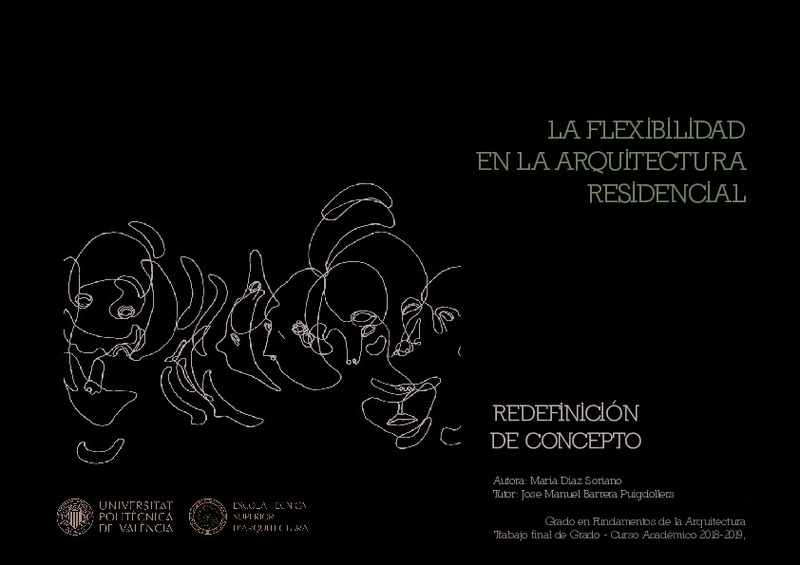|
Resumen:
|
Desde hace años la arquitectura residencial se ha sumergido en la transformación del espacio con el objetivo de incluir al usuario en la organización de este. Propuestas y teorías centradas en el cambio del espacio interior ...[+]
Desde hace años la arquitectura residencial se ha sumergido en la transformación del espacio con el objetivo de incluir al usuario en la organización de este. Propuestas y teorías centradas en el cambio del espacio interior mediante nuevas configuraciones, agregación de variables, mecanismos, movimientos, etc. que permitieran una cierta libertad al individuo. A pesar de su intento de acercamiento, todas esas propuestas del rehacer de la arquitectura pensadas en base al usuario, han excluido al individuo tanto en el instante inicial de ocupación como futuro y el entorno que lo conforman, al prestablecer unas variables de transformación determinadas.
En el siguiente trabajo se procede a realizar una revisión sobre el concepto de flexibilidad en el alojamiento como herramienta utilizada en base al cambio del espacio y la vinculación de este con el individuo a través de la concepción de la sociedad, usuaria de la arquitectura, como conjunto evolutivo y cambiante según los factores de su entorno.
Tras una revisión de las propuestas y teorías arquitectónicas surgidas entorno a dicho concepto y un análisis contextual de la corriente del conocimiento y el individuo, se realizan una serie de indicaciones que permitan la actualización de la flexibilidad con el objetivo de adaptar el concepto de una redefinición de este para adaptarlo a las nuevas premisas de la heterogeneidad de la sociedad, actual y futura, sin concebir el alojamiento únicamente como el espacio interior construido sino una agrupación de diversos factores (ambientales, tecnológicos, sociales, ecológicos y económicos) que se impongan ante lo temporal
[-]
The residential architecture has been concentrated in the transformation of space since years with the objective of include the user in the organization of this. Designs and theories centred on the change the interior space ...[+]
The residential architecture has been concentrated in the transformation of space since years with the objective of include the user in the organization of this. Designs and theories centred on the change the interior space through new configurations, aggregation of variables, mechanisms, movements, etc. that allow freedom to the user.
In spite of the attempt to approach to the user, all designs about the progress to the architecture that have been created based to the user have excluded them, in the first and the future moment to dwell the houses besides the environment situation that comprise it, because the architects have invented some determined variables for this transformation.
The following work aims to review the concept of flexibility used as a tool based on the change of space and the connection of this with the persons through the conception of society, as a user of architecture. A concept of society like a evolutive and unpredictable group according to the factors of its environment.
After review the designs and architectural theories that emerged around this concept and a contextual analysis of the current of knowledge and the user, proposed some indications are made the update the concept of flexibility in order to adapt her definition. A redefinition of this to adapt it at the new premises of the heterogeneity of the society, current and future, without come up with the ability in the interior space only but a combination of diverse elements (ambient, technology, society, ecological and economic) that are imposed before the temporary.
[-]
|







